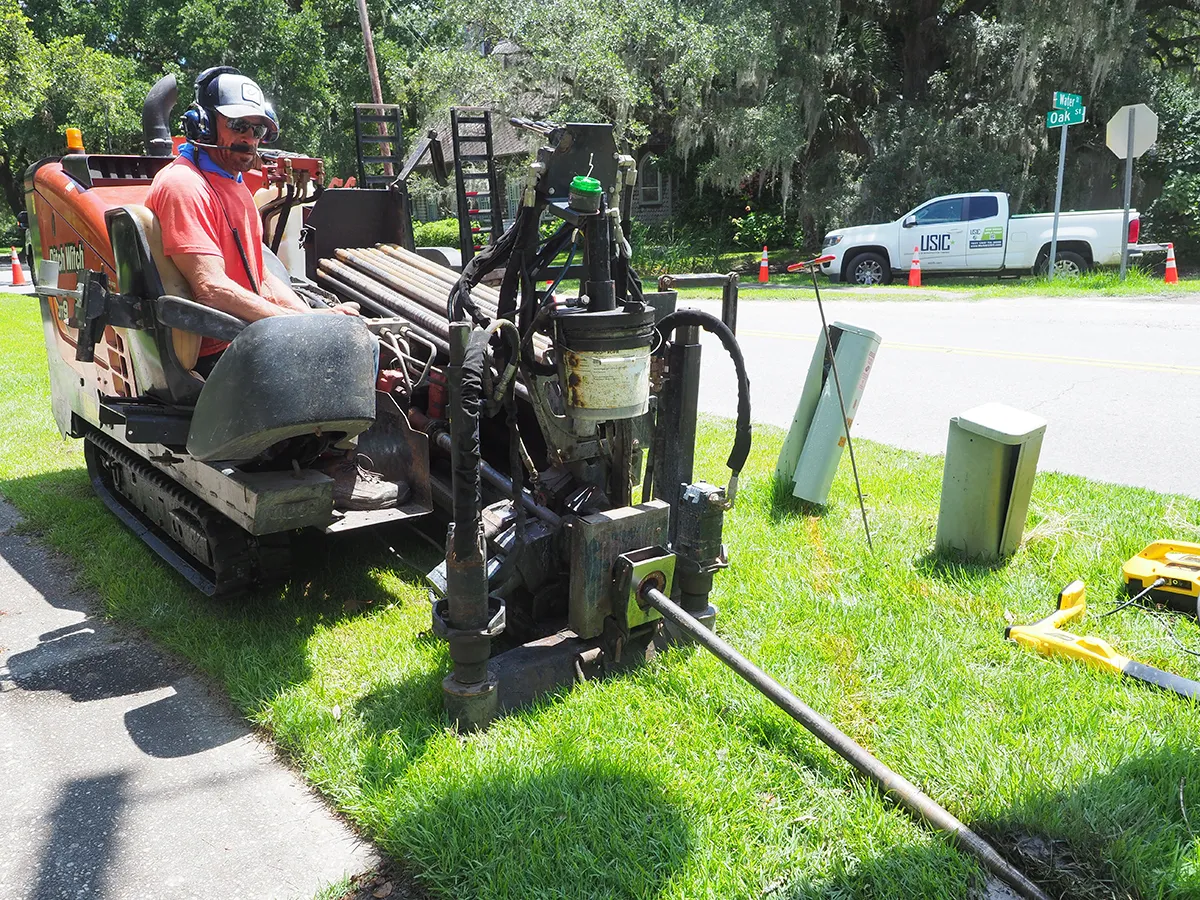
By Herb Frazier | The roar of drilling machines across rural areas of the Berkeley-Charleston-Dorchester county region signals more households, offices and eventually community centers are being connected to high-speed broadband service.
Thanks to federal funding, South Carolina has made “digital inclusion” a priority to bring fast, reliable and affordable internet service to an estimated 2 million households in underserved rural communities with an emphasis on children.
Elaine Morgan, CEO of the Berkeley County Chamber of Commerce, said educational achievement data show “our children didn’t do so well” stuck at home during the pandemic with no internet access.
“We have to do everything in our power to help them regain lost time and keep them on a steady path of learning,” she told the Charleston City Paper. Linking more homes in underserved areas to the digital information highway is one solution, she stressed.
Earlier this summer, South Carolina received a $551 million allocation in federal money to lay fiber optic cable for broadband expansion. The money comes from the Infrastructure Investment and Jobs Act (IIJA) that President Joe Biden signed in November 2021.
The state estimates it will receive the IIJA money in the first quarter of 2025, said Jim Stritzinger, director of the S.C. Broadband Office.
To receive the funds, South Carolina must first submit by Aug. 28 a five-year Broadband Equity Access and Deployment (BEAD) Action Plan to the National Telecommunications and Information Administration (NTIA), which is a part of the U.S. Department of Commerce.
In May 2022, the Broadband Office received from the American Rescue Plan its first allocation of $400 million. So far, the state has committed $150 million of that allocation to award grants to 15 internet service providers in 34 counties to make it financially feasible to run costly fiber optic lines to more homes and businesses.
At a recent meeting of the S.C. Broadband Advisory Council, Stritzinger said 191,548 households statewide had no internet service as of March 31. As broadband service spreads, that number is expected to be cut by some 58,000 households before the end of the year, he said.
Included in that figure are some 31,000 students who lack internet access at home. The Broadband Office has made students a priority, and it is making investments that should cut that number in half by December 2024, he explained.
The investment is paying off around Awendaw in Charleston County, said town councilman Robert A. Causey Sr., a Home Telecom customer who got faster internet access to replace a slow analog system.
“Everybody in the town was complaining about the internet service,” he said. “It has really helped us [to recruit] people considering moving to Awendaw,” he said.
Spreading the word
 Charleston native Mignon Clyburn, a Washington, D.C., consultant to broadband and technology companies and former commissioner on the Federal Communications Commission, said, “We can lay down all the fiber, erect all the poles, sponsor hundreds of open houses and sign-up drives, but if those who would benefit from being connected the most are not included, then we would have spent a lot of money building technology bridges to … only to a privileged few. That is for me the biggest challenge, but it is among the simplest to address.”
Charleston native Mignon Clyburn, a Washington, D.C., consultant to broadband and technology companies and former commissioner on the Federal Communications Commission, said, “We can lay down all the fiber, erect all the poles, sponsor hundreds of open houses and sign-up drives, but if those who would benefit from being connected the most are not included, then we would have spent a lot of money building technology bridges to … only to a privileged few. That is for me the biggest challenge, but it is among the simplest to address.”
To make rural broadband expansion successful, Home Telecom in Moncks Corner has partnered with the Berkeley County Chamber of Commerce to educate people why the internet has become an essential part of life, said Gina T. Shuler, the company’s vice president of marketing
Morgan, the Berkeley Chamber’s CEO, added that a lot of people think they don’t need the internet. That’s why the chamber is trying to teach people how the service can connect them to a doctor, apply for a job, write a resume and send an email.
With grants from Google and chamber members, Morgan said the chamber has plans to upgrade five Berkeley County community centers with computers, low-cost Chromebooks, free internet connections and Wi-Fi. With the digital connection, she said, residents can access mental health and drug and alcohol treatment services.
“We’ve found that people in rural areas … don’t get the correct information, and they don’t get the information on time,” she said. By the end of the year, volunteers, called digital navigators, will begin training residents on how to access and use the technology.
Examples: Upgrades are planned at the Keith School Community Center in Cainhoy, the Alvin Recreation Center in Alvin, the Cross Community Center, the Tri Community Center in Sandridge and the Wassamassaw Community Center near Jedburg.
With an initial investment of $150,000, the chamber plans to open five upgraded community centers. Six more centers are expected later. Centers will be spaced 15 to 20 miles apart in Berkeley County, the state’s largest county, she said.
“We are a county of haves and have-nots,” Morgan said. “We want every resident … to enjoy the successes of Berkeley County. Residents ought to make a living wage and have all the basic needs and access to the agencies” that provide vital social and medical services. Broadband expansion, she added, “is a good road to make the changes we need.”
Herb Frazier is senior projects editor at the Charleston City Paper. Have a comment? Send to: feedback@charlestoncitypaper.com
















 We Can Do Better, South Carolina!
We Can Do Better, South Carolina!
Broadband only if you are outside a town limit. MY little town of 233 people and I am 100 yards inside the limit.
So I pay my telephone company a bunch of money to have internet.